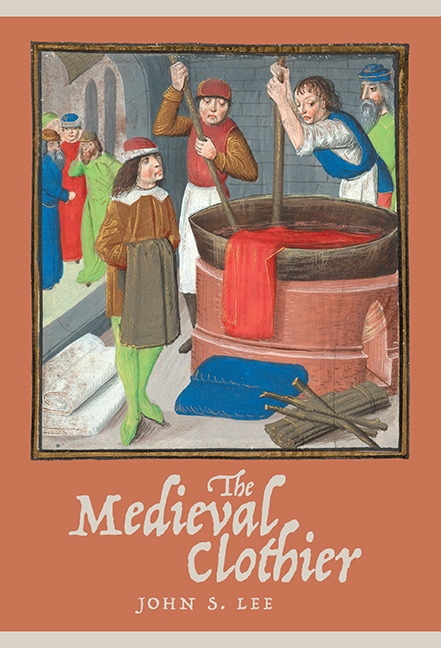Book contents
- Frontmatter
- Dedication
- Contents
- List of Illustrations
- List of Tables
- Acknowledgements
- Abbreviations
- A Note on Money, Weights and Measures, and Places
- Maps
- Introduction
- 1 Making Cloth
- 2 Marketing Cloth
- 3 Identifying Clothiers
- 4 Clothiers and Government
- 5 Clothiers in Society
- 6 Famous Clothiers
- Conclusion
- Appendices
- Gazetteer of Surviving Buildings
- Glossary
- Bibliography
- Index
- Frontmatter
- Dedication
- Contents
- List of Illustrations
- List of Tables
- Acknowledgements
- Abbreviations
- A Note on Money, Weights and Measures, and Places
- Maps
- Introduction
- 1 Making Cloth
- 2 Marketing Cloth
- 3 Identifying Clothiers
- 4 Clothiers and Government
- 5 Clothiers in Society
- 6 Famous Clothiers
- Conclusion
- Appendices
- Gazetteer of Surviving Buildings
- Glossary
- Bibliography
- Index
Summary
Writing in 1597, Thomas Deloney was clear about the benefits that clothiers and cloth-making brought to the wider economy and society, particularly through providing employment.
Among all manual arts used in this land, none is more famous for desert [deserving] or more beneficial to the commonwealth than is the most necessary art of clothing; and therefore as the benefit thereof is great, so are the professors of the same to be both loved and maintained. Many wise men therefore having deeply considered the same, most bountifully have bestowed their gifts for upholding of so excellent a commodity which hath been and yet is the nourishing of many thousands of poor people. Wherefore to you, most worthy clothiers, do I dedicate this my rude work, which hath raised out of the dust of forgetfulness a most famous and worthy man, whose name was John Winchcomb, alias Jack of Newbury.
There were faint local echoes of these sentiments in summer 2017 when Newbury Town Council applied for planning permission to install a life-sized bronze statue of Jack of Newbury, or John Winchcombe II, the subject of Deloney's work. Depicting Jack holding a yard of cloth on his right arm while raising his left hand, ‘as if to dramatically capture the moment he conceived the idea to scale up the process of dyed-cloth production’, the statue is intended to draw the eye to the remains of the Winchcombe's Tudor residence in Northbrook Street and, according to the planning application, celebrate the town's rich cultural heritage and promote ‘a greater sense of civic pride among the whole community’. One online respondent, however, posted that they would not want this ‘Tudor fat-cat industrialist’, ‘Newbury's most notorious social climbing despot’, and ‘the town magistrate who executed the Newbury martyrs by having them burned alive’, to be commemorated in this way.
While historians usually tend to shy away from making moral judgements, they have also been uncertain about the impact that clothiers made in the wider economy and society.
- Type
- Chapter
- Information
- The Medieval Clothier , pp. 272 - 281Publisher: Boydell & BrewerPrint publication year: 2018

